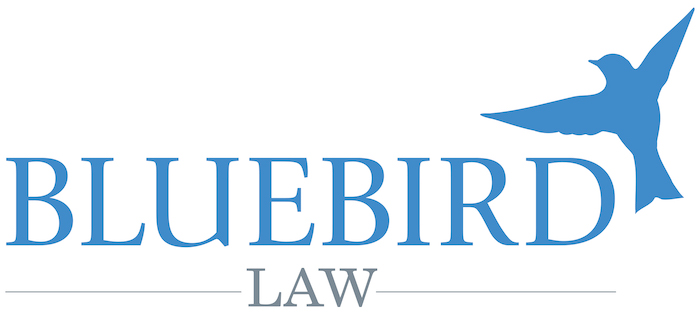Who We Help
We know you love your family. You want to pass on what you have worked so hard for your entire life and you want to do it in a way that feels good and full of ease. And you know your wealth is not measured only by the dollars in the bank, but by the well-being of the people you love.
Family People
You may be single or married, have children or not, or be in a traditional or modern relationship.
The one common denominator is that you truly and deeply care about the people in your life and you want to make things as easy as possible for them when something happens.
This might be simple if only our probate courts were not clogged with the impact of the complexity of money and family – then it would be “easy” to go through court and there would not be $58 billion of unclaimed assets in the United States.
The protection of estate planning is for all individuals and families who have anyone and anything they care about.
Married With Children
When you are married with children, estate planning seems pretty straightforward.
You want your spouse making decisions for you if you can’t, and you want your assets go to your spouse when you die and then to your children.
But a myriad of questions need to be answered to ensure your family stays out of court and out of conflict in the event of your incapacity or death, even when you are simply married with children. And some tactical specifics need to happen to ensure your assets don’t end up lost to the state department of unclaimed property if your family overlooks something when you are not there to guide them.
Blended Families
No matter how close or friendly you think your spouse and your children are, there is simply unavoidable and inherent conflict among them upon your death.
The great news is that this conflict can be mitigated and you can ensure that the people you love most will all be well taken care of with the most ease possible.
You can even take actions in advance to support their being on the same team in a time of grief if and when something happens to you.
But it does not happen like magic. It does take planning.
Life Partners
In many ways, estate planning is almost more important for you when you are in an unmarried relationship with your life partner.
The law does not protect your life partner, period.
You have to take action yourself to ensure you will have access to your loved one’s hospital bedside. If you do not take action, it is possible that the person you love most in the world could be blocked from being with you after an accident, making health care decisions for you, deciding what you are nourished with if you cannot decide for yourself, or who gets to see you.
And that is just your healthcare.
Without the protection of estate planning, you leave a lot up to chance.
Single Parents
If something happens to you while your children are minors, you want to ensure you have made the decision about who cares for them and how.
In the most ideal scenario your child’s other parent would be suitable to take custody of your child if you cannot be there. But in many cases, that’s not possible or desired. And even if it is, you may want the financial resources you are leaving behind cared for by someone other than your former spouse or partner.
You need to take the necessary steps to legally document your wishes so nothing unexpected happens.
Your Chosen Family
No matter who your chosen family is, you have people and things you care about and want to protect.
You want to pass on what you have worked so hard for your entire life and you want to do it in a way that helps your loved ones know and feel your love just when they will need to most.
On top of that, and maybe even more importantly, you want to choose who will receive what you have worked so hard to create.
To boot, you want to ensure that your chosen family will be able to care for and love you in the event you are incapacitated and cannot make healthcare decisions for yourself.
Estate planning helps you do all of it, with ease.
Schedule Your Free 15-Minute Consult
With our life and legacy planning model, we help you confidently make legal and financial decisions so you know you have a plan to keep everyone you love out of court and out of conflict after you pass. Schedule a complimentary consult to learn more.

Frequently Asked Questions About Estate Planning
Your Last Will is a legal document through which you distribute some of your assets upon death. Other assets will be distributed not based on your Last Will but on your beneficiary designations, depending on the situation. Over two-thirds of the U.S. adult population does not have a Last Will, and for those who do, most Last Wills do not fully cover their situation. Upon death, the only want to make a Last Will valid is to file it in the probate court, a public and normally lengthy process that delays your family access to what you have left behind.
In the world of estate planning, the best outcome for you, your family, and your loved ones will be achieved only by working with a lawyer who encounters estate planning situations daily. You have worked your whole life for what you have and the relationships you have created. Unfortunately, some families collapse after the death of a loved one because they either did no planning at all, or if they did, it was through an online platform that knew nothing about their family or circumstances and that ultimately failed them when their family needed help the most. We encourage a lifelong relationship between you and your estate planning attorney so that you have a lawyer for life to be there for your family when you cannot be.
This is the most often asked question in estate planning, and that is okay – we know the topic of cost is a sensitive one when it comes to choosing a professional to guide you, and we have designed our fees on a flat-fee basis only so that you know exactly what you are committing to – and there are no surprises. While we cannot quote exact fees online or over the phone, we invite you to call our office to schedule a free 15-minute consult where we can see if our unique meeting process and fee schedule would be a good fit for your needs. Or, you can check out our upcoming educational events where we will address estate planning questions you maybe didn’t even know to ask. Either way, we will help you know exactly how to take the next steps at the best time for you and your family.
Think of a Trust as a “Will substitute.” What we mean is that just as a Last Will distributes your assets upon death, a Revocable Living Trust does the same. The upside of a Trust over a Will is that a Trust need not be filed with the probate court to be effective, whereas a Last Will must be filed with the probate court to have any effect. As a result, a Trust remains a private document pertaining to your private affairs, whereas a Last Will becomes a public document after you pass away no matter how private you were during your lifetime. Of course, there are additional types of trusts as well that serve different purposes, and each family’s unique situation must be taken into account to design the right overall estate plan, which may include one or more Trusts.
No, of course not! After you are gone, your loved ones will miss you deeply – they will long for your words of counsel and concern, and hearing an old voicemail or reading a letter from you again would be a tremendous gift. This has nothing to do with money. Through our unique life and legacy planning process, you can give your loved ones the most precious gift of all – a lasting expression of your love. This is because we believe estate planning is not just about transferring your financial assets and personal belongings. It is equally about capturing and transferring your valuable intangible gifts: your values, insights, stories, and experiences. What could be more valuable? Estate planning is not only for those rich with money. Everyone we know already has an estate as valuable as anything in the world and that they should protect.
Your estate plan works no matter where in the U.S. you might physically be (such as on vacation) or might move to. This said, we always recommend finding your neighborhood Personal Family Lawyer to review your out-of-state plan to help you ensure you make any necessary updates based on differences in state law.
Avoid The Six Mistakes Most Families Make When Choosing An Estate Planning Attorney
Did you know that many families fly in the dark when it comes to securing their legacy for their loved ones? You can avoid these mistakes today by discovering exactly what to consider when hiring the best estate planning attorney for your family.
